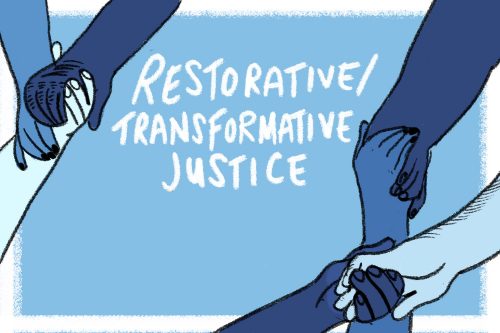Groups working to put ‘justice’ in ‘criminal justice’ face choices about how to frame the issues and focus their efforts. Many groups join movements out of concern for racial equality or racial justice. And many of us know the criminal justice treats black Americans worse than whites. But I’ll point to a tension in some of these issues – one that shows the benefits of a transformative justice approach. Only by working for transformative justice as its primary goal will leftists achieve what they have in mind.
Incarceration Data
It sounds like racial equality and transformative justice go hand in hand, right? A society that works toward racial justice would also create the kind of systemic change needed to put fewer people in prison.
But there’s no guarantee of this. The data for the U.S., in fact, show the opposite. Here’s a map showing racial inequality by state:
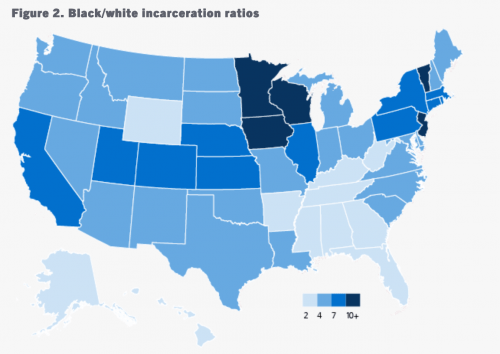
States shaded in dark blue – Iowa, Minnesota, New Jersey, Vermont, Wisconsin – lock up ten times more black residents than white residents. To go into more depth on the worst states, here’s more detailed data on the ten states with the least racial equality:
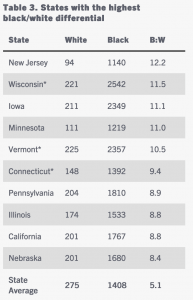
And, to round it out, here’s all the states (note: readers might need to use the zoom function here):
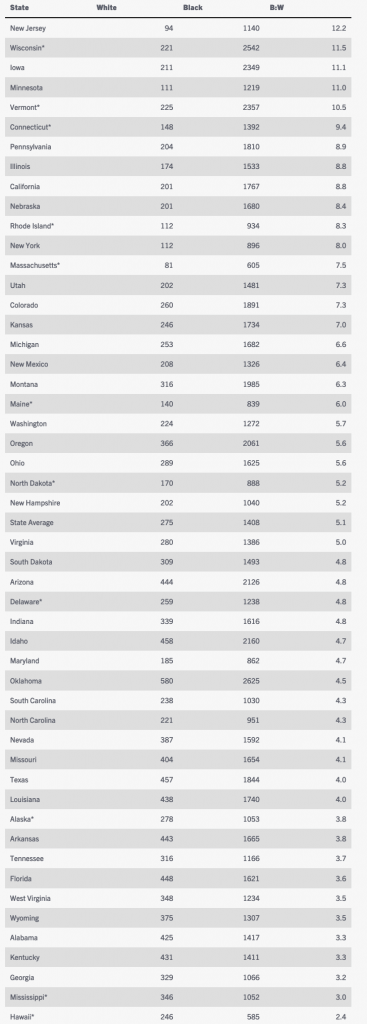
So, that’s how states are doing on racial equality. Here’s a map of each state on overall incarceration:
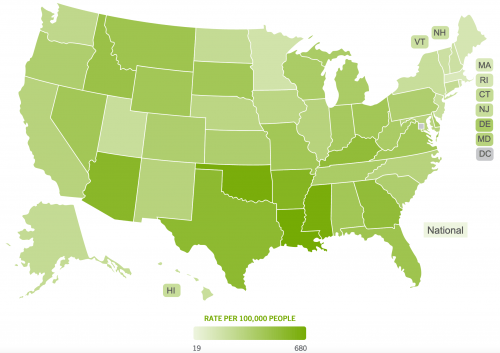
OK, so that map looks a bit different. The states above that scored badly on racial equality tend to lock up fewer people overall, not more. On the other hand, states like Mississippi and Oklahoma that score better on racial equality lock up far more people overall.
To confirm these trends, let’s look at overall incarceration data for each state:
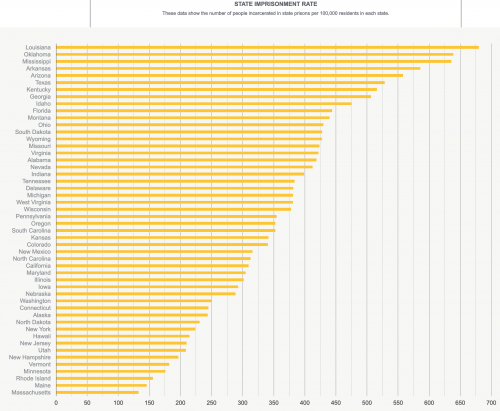
Indeed, these data confirm the negative correlation between racial inequality and overall incarceration. The ten states that lock up the most people have below average racial inequality. And the 10 states with the most racial inequality lock up fewer people than average.
Transformative Justice as Primary Goal
So, what’s the deal here? Why don’t racial equality and transformative justice work hand in hand?
It’s hard to say. But when we pull back and think about it, we shouldn’t be surprised to find they fail to work together without special effort. We know from studying the relationship between capitalism and racism that capital is fine with racial equality if (and only if) it comes with no changes to the deeper capitalist system. And so, we shouldn’t be surprised to find that police, et al. don’t mind forms of racial equality that they achieve by arresting more people, i.e., gaining racial equality by arresting more white people rather than fewer black people. And we can do that without a deeper program.
States that lock up fewer people overall would say they cut policing down to its core functions. But if states have high levels of racial inequality, what does that say about the ‘core function’ of the justice system? Working on that issue, in turn, requires that we focus on transformative justice.
Putting the point a bit more abstractly – there are two easy ways to achieve racial equality in the justice system. One, put no one in prison. Or two, put everyone in prison. Either option leaves us with a system of perfect equality. And while the former may achieve transformative justice, the latter does not.
Given the tension between racial equality and transformative justice, the left should focus on the latter as its primary goal. It should change the underlying system in such a way that reduces overall incarceration and increases racial equality. Focusing on racial equality as the primary goal will likely fail to advance our aims.
N.B.
For the data above, I used work on racial disparity and overall incarceration from The Sentencing Project.
And for one final note, it’s worth noting that one U.S. state – Hawaii – combines low racial inequality with low incarceration rates. We might want to think about how we can learn from Hawaii when working on transformative justice. How did Hawaii do it? I don’t know. But I might mention that it’s the least white state in the U.S. That may help.
